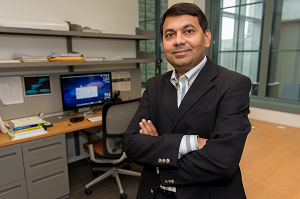Teaching

"Mathematics is the language of physics" - Neelesh Patankar
My teaching approach is based on four ideas:
I. Connecting equations and physical phenomena: Given my subject area of fluid mechanics, there are lot of equations. Engineering students typically think of a phenomenon in physical terms rather than through equations. I have seen this to be especially true of undergraduates. Hence, they are usually resistant to dealing with theory. The key to enhancing their learning experience is to explicitly connect the equations to the physics. This is a consistent aspect of my lectures and my central teaching philosophy.
II. Emphasis on concepts: An outline of concepts to be learned, are typically written on the board at the beginning of the lecture. In almost all my courses the exams are open book/notes to shift the focus away from memorizing formulas and towards concepts. The solutions to exam problems are typically short answers of a few lines, if the student gets the concept right. Cumbersome calculations are minimized.
III. Problem solving: This is strongly encouraged through examples problems and/or course projects.
IV. Absolute grading: This is done to encourage peer learning and to have some absolute measure of performance. Some exams have extra credit questions. Thus, students are given ample opportunities to make up for lost credit, if they don’t do well in one of the exams.
Courses
- ME 373 Engineering Fluid Mechanics
- ME 377 Heat Transfer
- ME 423 Introduction to Computational Fluid Dynamics
- ME 424 Advanced Topics in Computational Fluid Dynamics
- ME 425 Fundamentals of Fluid Dynamics
Teaching awards
- Charles Deering McCormick Professor of Teaching Excellence, 2014
- McCormick Teacher of the Year for 2012-2013
- Honorable mention McCormick Teacher of the Year, 2008
